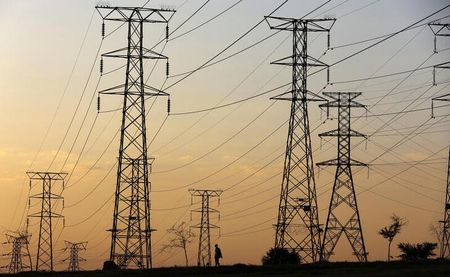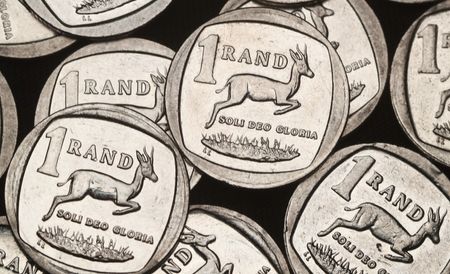By Rachel Savage and Kopano Gumbi
JOHANNESBURG (Reuters) – High hopes that South Africa’s government will next month lay out plans to take on a majority of the debt owed by beleaguered state utility Eskom have lifted the company’s bonds, providing some relief to investors facing a long and uncertain wait.
South Africa has been struggling for years to overhaul its state-power company which is plagued by corruption and mismanagement and reeling under a 400 billion rand ($23.3 billion) debt pile.
Meanwhile, Eskom’s implementation of increasingly intense rolling blackouts has hamstrung growth in Sub-Saharan Africa’s most industrialised economy.
Finance Minister Enoch Godongwana told Reuters last week he was “sharpening his pencil” to provide details, so far scarce, for taking on between one- and two-thirds of Eskom’s debt in his Feb. 22 budget presentation.
“The more debt the government is willing to take on, the better for Eskom, because it will help to reduce its interest costs, which is one of the big problems,” said Max Wolman, senior portfolio manager at Abrdn, which holds the bonds.
Eskom’s debt pile is not just big, it is also complex.
According to the latest company report, just over 42% of its 396 billion rand burden is in domestic rand-denominated bonds and nearly a third is owed to development finance institutions including the World Bank and China Development Bank.
Another 15% is international bonds, held by global asset managers such as PIMCO, BlackRock and Fidelity, according to recent filings. Citi says three-quarters of its bonds are government-guaranteed.
Eskom’s international bonds could rally if the government takes on two-thirds of the debt, Wolman said, while limiting that to one third or carrying out the debt transfer over a long period of time could be negative.
While Godongwana said a transfer would happen in phases to keep South Africa’s debt-to-GDP levels stable, he did not provide details.
The plans have been years in the making with the government first pondering a debt transfer some four years ago, said Olga Constantatos, head of credit at Futuregrowth Asset Management
“The magnitude of the crisis at Eskom is escalating and we believe more urgent and focused action is needed,” she said.
While the situation is pressing, it could take a while before a transfer is actioned after the budget.
“There is likely to be little in terms of action on the back of this announcement,” said Alexander Rozhetskin at Citi. “We expect that Eskom will need to meet certain criteria before it can offload some of its debt on to the sovereign.”
Citi is positive on Eskom debt, especially longer-dated issues which would reap more benefits from a transfer, predicting spreads could tighten at least 100 basis points.
Eskom’s bonds seem to reflect part of that optimism, with some of its international issues up more than 8 cents on the dollar this year to trade at multi-month highs, Tradeweb data shows.
Khanyisa Phika and Murendeni Nengovhela, economists at Alexforbes, a South African firm that holds Eskom debt, expect the government to present “a credible action plan” and take on 250 billion rand of its debt. But they also hope the government will make progress on another long-standing issue, namely splitting the behemoth into generation, transmission and distribution arms.
Split or not, Eskom “should now be considered an extension of the sovereign, and bonds should trade as such”, JPMorgan analyst Zafar Nazim wrote in a note to clients, encouraging investors to buy Eskom’s Eurobonds before the budget.
He estimated that even without the debt transfer, recently approved tariff increases of 18.6% for the 2023/4 financial year and 12.7% for 2024/5, combined with ongoing government cash injections, would cut Eskom’s net leverage to under three times by 2024/5, from 6.5 times three years earlier.
Eskom’s diversity of creditors has given the company a wide range of funding avenues but it could also hold up any debt transfer, said Jones Gondo, an analyst at South Africa’s Nedbank.
“At any point, any of those groups can say we don’t like this,” Gondo said. “The transaction is not successful unless you transfer the full amount. You can’t have any kind of overhang in the execution of this.”
($1 = 16.9762 rand)
(Reporting by Rachel Savage and Kopano Gumbi in Johannesburg, additional reporting by Promit Mukherjee; Marc Jones and Jorgelina do Rosario, editing by Karin Strohecker and Kirsten Donovan)











